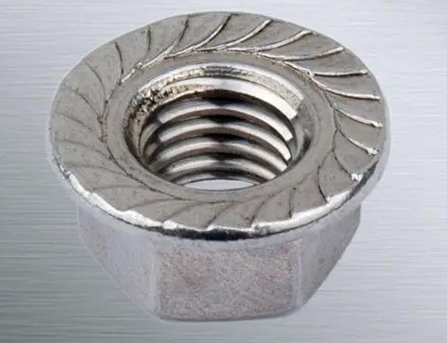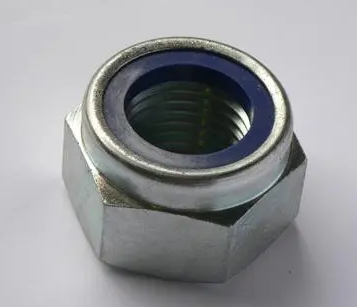Fastener Showdown: Flanged Nuts vs Self-Locking Nuts
Time:2024-03-04 20:02:23 Source:未知 Click:次
In the fields of industrial manufacturing and mechanical design, the choice of fasteners is crucial to the performance and safety of a product. As an important component of connectors, flanged nuts and self-locking nuts each have their unique features. This article will delve into the characteristics and applications of these two types of nuts, as well as compare them, helping users to make an informed choice based on specific needs.
First, let's understand what a flanged nut is. As the name suggests, a flanged nut has a flange on one side of the ordinary nut, which can increase the contact area, thereby providing a larger support surface and stronger tightening force. Due to the presence of the flange, it can effectively prevent loosening caused by vibration or rotation. Therefore, flanged nuts are widely used in environments that require high vibration resistance or large torque, such as automobiles, construction, and heavy machinery.
Next are self-locking nuts, also known as self-locking nuts. These nuts are specially designed to generate friction on their own after being tightened, thereby preventing themselves from loosening. Common types of self-locking nuts include nylon-insert lock nuts with nylon inserts and metal lock nuts with metal locking devices. They are particularly suitable for situations where conventional fasteners may fail due to temperature changes, impact, or vibration.
So, in the competition of fasteners, what are the advantages and disadvantages of flanged nuts and self-locking nuts? Flanged nuts are favored for their good anti-vibration ability and large bearing surface, especially suitable for situations that require high load capacity and stability. However, they may require more space during installation and are not suitable for use in spaces with limited room.
In comparison, self-locking nuts are known for their excellent self-locking performance, making them very suitable for applications with frequent vibrations or high safety requirements. However, in some cases, prolonged use may lead to a decrease in their locking effect, requiring regular inspection and replacement.
When selecting fasteners, besides considering their performance, cost, installation convenience, and maintenance needs should also be taken into account. Although both flanged nuts and self-locking nuts have excellent functions, their suitability varies under different environmental and conditional circumstances.
In conclusion, whether choosing flanged nuts or self-locking nuts, the key lies in clearly understanding the specific needs of the application. For environments that pursue extremely high stability and load capacity, flanged nuts may be the better choice; while in situations that require outstanding self-locking performance and adaptation to tight spaces, self-locking nuts may have the upper hand. By deeply understanding the characteristics of these fasteners, users can make more precise and reliable decisions for various engineering projects.




